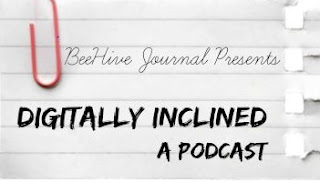Is Click bait unethical?! Click here to find out!
Rebecca Blake
BeeHive Journal
 |
| BBC, Washington Post and the New York Times have all been accused of click-bait. Is it a real concern? (photo creds Quora) |
Clickbait is everywhere you look; on Facebook, Twitter, even in the Sunday paper. Click-bait has broken out like a digital rash, infecting everything on the web, even the most sophisticated news organizations.
The big question orbiting the ominous buzz-word is whether it is ethical. What line does media draw when it comes to getting clicks and likes? In the eyes of many, clickbait is as criminal as straight-up lying in an article. However, a growing population of tech-savvy journalists who approve of clickbait, are embracing it with critical, loving arms.
Though the public perception of click-bait is bad, news organizations utilize click-bait to gather views and shares, which can lead to exposure and advertisement money.
Click-bait is the art of catching a reader's eye by initiating a battle. Catchy titles intrigue the reader, catches them off guard, and by releasing only the most dramatic details with little to no context, these articles challenge the reader to keep on reading.
Is this ethical?
That is up to debate.
Tabloid media and gossip magazines have been around that have broken huge stories and have used (not necessarily) click-bait to their advantage for years. Digital-natives Upworthy used clickbait to spread the news.
What makes click-bait ethical is how it is used, which is generally grouped into netiquette. Net-etiquette is the rules of acceptable internet behaviour. It's the ethical code netizens (citizens of the net) exercise when surfing the web. For news organizations, netiquette is compatible with the ethics taught in traditional journalism school.
According to ethics.journalists.org, “clickbait” 'headlines or social media posts that seek to deceive users into clicking on a story are viewed with disdain for much of journalism.” (source) meaning, it's not unethical if the title is correct/true, but it's considered the ‘easy way out’ in journalism.
How can one be ethical and still attract an audience?
| Yoast is a popular plug-in for many digital journalists. (photo creds Yoast) |
Search engine optimization, or SEO, is vital to the digital journalist. SEO uses a keyword, subheads and tags to increase traffic flow to the article without the use of clickbait. It increases engagement and audience loyalty.
Programs like Google Analytics and Facebook Insights are beneficial for providing a (pardon the pun) insight to what the audience wants to see when they see it, and how you can attract more people to your content.

Comments
Post a Comment